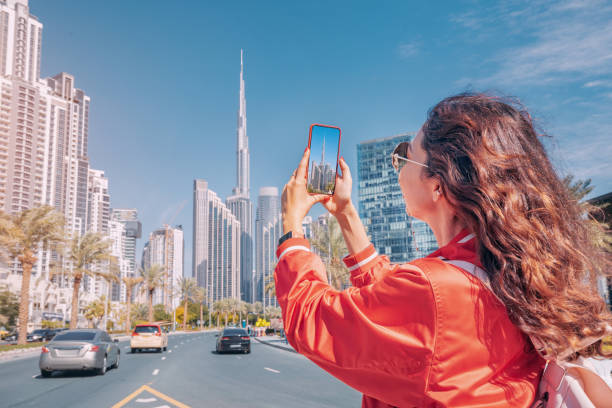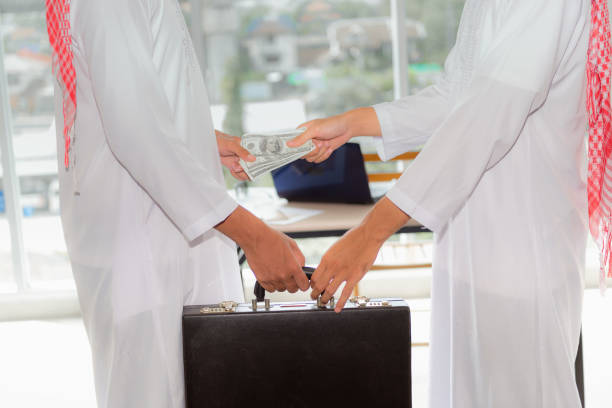The United Arab Emirates (UAE) boasts a dynamic and rapidly growing economy that has garnered global attention. Known for its strategic blend of traditional and modern industries, the UAE has leveraged its rich natural resources and innovative economic policies to foster an environment of prosperity. The UAE’s economic landscape is marked by a significant presence of the oil and gas industry, robust tourism, and strategic diversification efforts. By focusing on multiple sectors such as real estate, financial services, and trade, the UAE continues to strengthen its global standing. This article delves into the leading industries that drive the UAE’s economy and analyzes their contributions.
Historical Overview
Before the discovery of oil, the UAE’s economy was primarily based on fishing, pearling, and trade. The discovery of oil in the 1950s marked a turning point, dramatically transforming the region’s economic landscape. Oil revenues spurred rapid development, enabling the UAE to invest in infrastructure, healthcare, education, and social welfare. This economic boom laid the foundation for the UAE’s modernization and global prominence. The visionary leadership of the UAE’s rulers further accelerated growth, diversifying the economy beyond oil dependency.
Oil and Gas Industry
Dominance and Contribution
The oil and gas industry remains the cornerstone of the UAE’s economy. It has played a pivotal role in the nation’s economic growth, contributing significantly to GDP and government revenues. Major players like the Abu Dhabi National Oil Company (ADNOC) and partnerships with international firms ensure robust production and export capabilities. State involvement and strategic initiatives have sustained the industry’s dominance while pushing for technological advancements and sustainability. As a result, the UAE continues to be a leading global oil exporter.
Export Markets
The UAE’s oil exports have established it as a critical player in the global energy market. Key trade partners include countries in Asia, Europe, and North America. Collaboration with these partners not only boosts economic ties but also influences international oil prices. Natural gas exports, especially liquefied natural gas (LNG), further diversify the UAE’s energy portfolio. With its extensive export network, the UAE remains a stable supplier to global markets.

Diversification Efforts
Vision 2021 and Beyond
The UAE recognizes the importance of reducing its reliance on oil and has launched Vision 2021 to guide its diversification efforts. This initiative aims to create a knowledge-based economy driven by innovation and sustainability. By investing in sectors like renewable energy, technology, and education, the UAE is building a resilient economic future. Government policies and incentives, such as the green visa Dubai, attract skilled professionals and entrepreneurs, fostering innovation and growth. Vision 2021’s ambitious targets are milestones towards a diversified, competitive economy.
Non-Oil Sectors
The UAE’s diversification strategy emphasizes investment in various non-oil sectors. Infrastructure projects, including world-class airports, seaports, and road networks, support economic activities and enhance connectivity. The tourism and hospitality sector leverages iconic landmarks and luxury experiences to draw millions of visitors annually. Additionally, the financial services industry is thriving, with robust banking and investment opportunities. Success stories in these sectors showcase the UAE’s ability to diversify and reduce oil dependency effectively.
Tourism Industry
Major Attractions
The UAE’s tourism industry is a major contributor to its economy, attracting millions of visitors each year. Iconic landmarks such as the Burj Khalifa, the world’s tallest building, and the sprawling Dubai Mall, one of the largest shopping destinations, are significant draws. Cultural and historical sites, including the Sheikh Zayed Grand Mosque, provide a glimpse into the region’s heritage. Beaches, resorts, and desert safaris offer diverse experiences. The UAE’s tourism infrastructure is continually expanding, with new attractions and developments enhancing its global appeal.
Annual Events
Annual events and festivals play a vital role in boosting the UAE’s tourism sector. Some of the prominent events include the Dubai Shopping Festival, Abu Dhabi Grand Prix, and the Dubai World Cup, the richest horse race in the world. These events not only attract tourists but also generate substantial economic impact by boosting local hospitality, retail, and entertainment industries. Cultural festivals celebrating art, music, and literature further enrich the tourism experience. The UAE’s events calendar is a testament to its vibrant and diverse cultural landscape.
Real Estate and Construction
Skyline Transformation
The UAE’s real estate and construction sectors have transformed its skyline with iconic architectural projects. Skyscrapers like the Burj Khalifa and luxury developments on Palm Jumeirah exemplify the nation’s architectural ambition. The growth of the luxury real estate market attracts international investors and high-net-worth individuals. Government-led infrastructure projects, including Expo 2020 and new urban developments, are driving continuous growth. The dynamic real estate market reflects the UAE’s vision of becoming a global business and lifestyle hub.
Economic Impact
The real estate and construction industries significantly impact the UAE’s economy. These sectors contribute substantially to the GDP and create employment opportunities across various skill levels. Foreign investments in real estate have surged, thanks to favorable policies and high returns. Additionally, the development of freehold properties has made the market attractive to international buyers. The table below highlights the key economic contributions of real estate and construction:
| Indicator | Contribution |
|---|---|
| GDP Contribution | 12.3% |
| Employment | 16 million jobs |
| Foreign Investment | $50 billion |
| Freehold Properties | 150,000 units |
Financial Services
Banking and Investment
The UAE’s financial services sector is a cornerstone of its diversified economy. Major banking institutions like Emirates NBD and Abu Dhabi Commercial Bank (ADCB) provide a range of services, from retail banking to corporate finance. The Dubai International Financial Centre (DIFC) serves as a hub for global financial activities, attracting banks, investment companies, and insurance firms. Regulatory frameworks and business-friendly policies enhance the sector’s stability and growth. The UAE’s financial services industry is instrumental in facilitating investments and economic development.
Emerging Fintech
The UAE is also emerging as a key player in the fintech industry. Digital banking, blockchain technology, and financial technologies are gaining traction, supported by government initiatives and a favorable regulatory environment. The Central Bank of the UAE has launched projects to foster innovation in the fintech space. Startups in this sector are benefiting from incubators and accelerators provided by entities like DIFC FinTech Hive. This focus on financial innovation ensures the UAE remains competitive in the global market.
Trade and Logistics
Strategic Location
The UAE’s strategic geographic positioning makes it a crucial hub for trade and logistics. Located at the crossroads of Europe, Asia, and Africa, the UAE connects major global markets. Its world-class ports, such as Jebel Ali in Dubai and Khalifa Port in Abu Dhabi, facilitate efficient cargo handling and distribution. Free zones like JAFZA and KIZAD offer businesses incentives and logistical advantages. The UAE’s trade infrastructure underscores its role as a leading global trade hub.
Global Trade Routes
The UAE’s trade and logistics sector is robust, driven by extensive trade routes and agreements. The following list highlights key import and export statistics:
- Imports: $240 billion annually
- Exports: $301 billion annually
- Major Trade Partners: China, India, USA, Saudi Arabia
These figures illustrate the UAE’s pivotal role in global trade. Free trade agreements with major economies further amplify its trade prospects. The UAE’s commitment to enhancing trade and logistics capabilities ensures sustained economic growth and international influence.

Aerospace and Defense
Government Investments
The aerospace and defense sectors in the UAE are seeing significant government investments. Projects like the establishment of the UAE Space Agency and the launch of satellites like KhalifaSat demonstrate the country’s ambitions in space exploration. The UAE Armed Forces also invest heavily in advanced defense technologies and systems. These initiatives underscore the nation’s commitment to becoming a leader in aerospace and defense.
Related Industries
The growth of aerospace and defense has spurred related industries, including airlines, aviation services, and support sectors. Emirates and Etihad Airways are leading global airlines, connecting the UAE with the world. Maintenance, repair, and overhaul (MRO) services are expanding to support the aviation industry’s growth. The UAE’s aerospace ambition is supported by collaborations with international players and continuous innovation.
Conclusion
In conclusion, the UAE’s economic landscape is a testament to its strategic vision and innovative policies. While the oil and gas sector remains foundational, diversification into industries like tourism, real estate, financial services, and trade ensures sustainable growth. Initiatives like Vision 2021 and the green visa Dubai exemplify the commitment to a diversified, knowledge-based economy. The UAE’s robust infrastructure, favorable business environment, and strategic location position it as a global economic powerhouse. The future holds promising opportunities for continued growth and prosperity.
Frequently Asked Questions
1. What is the primary industry in the UAE?
The primary industry in the UAE is the oil and gas sector, which has been the cornerstone of the country’s economic growth since the discovery of oil in the region.
2. How is the UAE diversifying its economy?
The UAE is diversifying its economy through substantial investments in non-oil sectors like tourism, real estate, financial services, and technology, under strategic initiatives like Vision 2021.
3. What are some major tourist attractions in the UAE?
Major tourist attractions in the UAE include the Burj Khalifa, Dubai Mall, Palm Jumeirah, Sheikh Zayed Grand Mosque, and various cultural and historical sites.
4. How does the UAE’s location benefit its trade and logistics sector?
The UAE’s strategic location at the crossroads of Europe, Asia, and Africa makes it a pivotal hub for global trade routes, bolstered by state-of-the-art ports and free zones.
5. What is the role of the Dubai International Financial Centre (DIFC)?
The DIFC plays a crucial role as a leading financial hub in the Middle East, providing advanced infrastructure and a business-friendly environment that attracts global banks, investment companies, and fintech firms.



